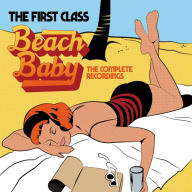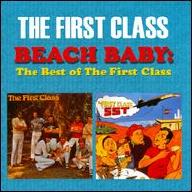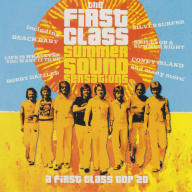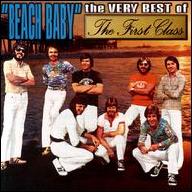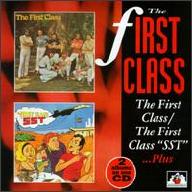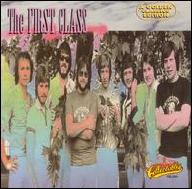The First Class was the studio creation of British singer/songwriter John Carter, who had previously enjoyed success with groups the Flowerpot Men, Carter-Lewis the Southerners, and the Ivy League. He was also a well-known writer of catchy, harmonically rich songs, placing songs with artists as diverse as Herman's Hermits and Brenda Lee. In June of 1973, Carter and his songwriting partner, Gill Shakespeare, came up with "Beach Baby," a sunny and nostalgic song very reminiscent of the Beach Boys. Later that year, they went into the studio to record it. To get the requisite vocal harmonies, Carter brought in regular collaborators Tony Burrows -- the voice of the Edison Lighthouse ("Love Grows [Where My Rosemary Goes]"), White Plains ("My Baby Loves Lovin'"), the Brotherhood of Man ("United We Stand"), and many more -- and Chas Mills, along with a crew of studio musicians. The finished product caught the ear of UK Records, which issued the single in May of 1974. A few months later, the song was a hit, reaching number 18 on the singles chart in the U.K. The band were offered a slot on Top of the Pops and other TV shows, but since Carter, Burrows, and Mills were more interested in studio work, a different set of musicians who had previously worked with Carter were assembled to perform and later appear on record covers. The single became a huge hit in North America, reaching number four in the U.S. and going all the way to the top of the chart in Canada. Carter and Shakespeare wrote songs in a similar vein for an album, and the band's debut self-titled LP was issued later in 1974.
Second single "Bobby Dazzler" didn't do as well, and its lack of success derailed the First Class' career and meant that the play based around the song's tale of a tragically frustrated musician never made it past the demo stage. With the First Class' fortunes fading, Carter turned his attention to releasing songs under different names as well as writing and recording advertising jingles. Work did begin on a second First Class record, taking a more mature and orchestrated approach on first single "Life Is Whatever You Want It to Be," then looking to recapture some early rock & roll magic on "I Was a Star." After issuing one more single, the disco-adjacent "Ain't No Love" in 1976, UK did ask for another album, and Carter cobbled together a batch of songs he and Shakespeare had written over the past year and a half. SST was released in 1976, and while it showed off the band's formidable writing and singing skills, it didn't catch on with the record-buying public. The First Class was relegated to the back burner while Carter issued a similar-sounding single under the name Starbreak. Further singles under the name the First Class did hit shelves in 1977 (the lush, "Beach Baby"-esque "Too Many Golden Oldies"), 1978 (the full-on discofied "Broken Toy"), and even into the '80s, with "Ocean of Glass" in 1981 and an electro-pop cover of Brenton Wood's "Gimme Little Sign" in 1983. This was the last single the band released, as Carter mostly retired from making pop music at this point.
The song "Beach Baby" continued to be a feature on any compilation looking for a burst of vitamin D, and collections of the band's work were regularly released. Their complete output, including songs recorded during the time under different names, the previously unheard demos made for the Bobby Dazzler stage play, and many advertising jingles, was released by Grapefruit under the title Beach Baby: The Complete Recordings in early 2023. ~ Tim Sendra, Rovi


